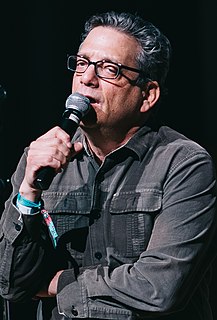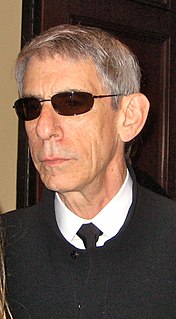A Quote by Paul Craig Roberts
For reporting a scientific finding, I was called a 'conspiracy theorist.' Only in America is scientific analysis seen as conspiracy theory and government lies as truth.
Related Quotes
The main thing that I learned about conspiracy theory, is that conspiracy theorists believe in a conspiracy because that is more comforting. The truth of the world is that it is actually chaotic. The truth is that it is not The Iluminati, or The Jewish Banking Conspiracy, or the Gray Alien Theory. The truth is far more frightening - Nobody is in control. The world is rudderless.
I think that there is something that happens, a phenomenon that happens around a conspiracy theory, where if you believe in a conspiracy theory, then every critique of that theory is simply more proof that the conspiracy exists. And I think that that's something that goes on in the person of Donald Trump.
Unfortunately, philosophers of science usually regard scientific realism and scientific anti-realism as monistic doctrines. The assumption is that there is one goal of all scientific inference - finding propositions that are true, or finding propositions that are predictively accurate. In fact, there are multiple goals. Sometimes realism is the right interpretation of a scientific problem, while at other times instrumentalism is.




































